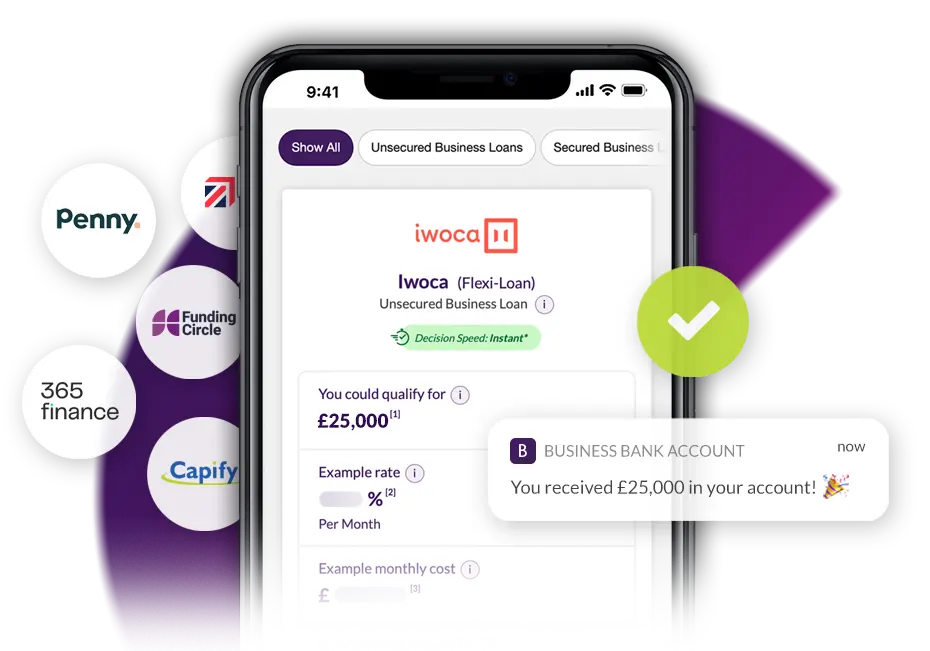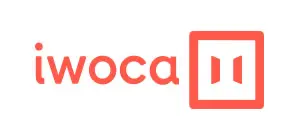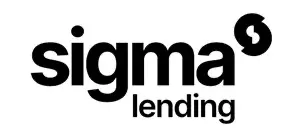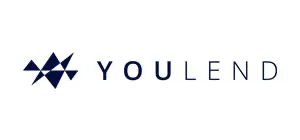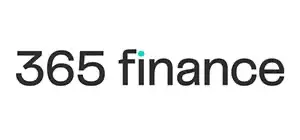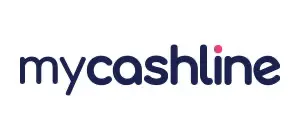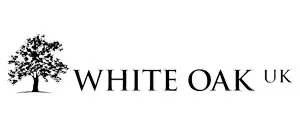Trade Finance
Get funding for goods, services and commodities, manage cash flow, and reduce the risk of domestic and international trading transactions with trade finance.
- Compare a wide range of lenders and rates
- Check your eligibility in minutes
- Find out how much you could borrow
It's fast, free and won't affect your credit score
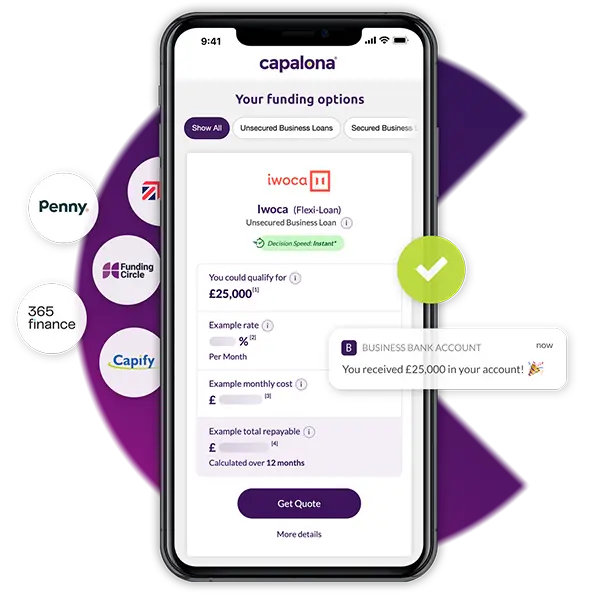

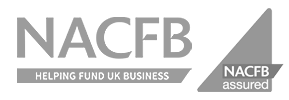



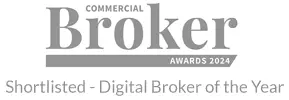
- What is trade finance?
- How does trade finance work?
- What are the different types of trade finance products and services?
- What are the benefits of trade finance?
- How do I apply for trade finance?
- Can I use trade finance globally?
- What is Uniform Customs & Practice for Documentary Credits (UCP 600)?
- Is my business eligible for trade finance?
What is trade finance?
Trade finance is an umbrella term that refers to a range of funding products and services that enable import and export businesses to trade goods easier and with less risk, both domestically and internationally.
It can include issuing letters of credit, invoice finance, supply chain finance and more. In this article, we will focus on a funding facility for paying suppliers.
Many exporters require importers to pay for goods before they’re shipped, but many buyers are reluctant to release payment without proof of dispatch or delivery. Paying upfront also presents potential cash flow issues that no business wants to deal with.
It’s a bit of a catch-22 situation, but luckily, trade finance gives exporters the peace of mind that they’ll receive payment for the goods. And the importer receives the goods sooner and pays later. So it’s a win-win for all parties involved.
Once the customer has paid for the goods, the trader will pay back the finance provider minus any agreed fees or charges.
How does trade finance work?
Trade finance works differently from a conventional business loan. Generally, the trade finance provider will purchase the goods from the supplier on behalf of the buyer. Once the buyer receives and sells the goods to customers, the buyer repays the finance provider minus their agreed fees.
When you trade internationally, there are inevitably risks involved, and trade finance acts as a third party to reduce those risks.
There are significant risks when trading internationally from political unrest or regulatory issues to uncreditworthy parties. All of these issues could have a massive impact on your supply chain.
You can use trade finance to help protect your business against these kinds of risks.
Trade finance example
An SME wants to import their new fitness leggings, and they choose to utilise trade finance. The trade deal is made with the involvement of an alternative funder as a third party. The two companies use a credit letter and a bank guarantee. Both parties are satisfied – the exporter can then rest easy knowing payment from the buyer will be made on time. Because the trade financier has verified the exporter, the importer knows the goods have been dispatched.
What are the different types of trade finance products and services?
As we’ve mentioned, trade finance is an umbrella term that houses different financial products and services. Here are some examples of these products and services:
Purchase Order Finance
Secured on a confirmed purchase order (PO), this purchase order finance can help plug the funding gap by financing the transaction until an invoice is raised.
Contract Finance
Similar to purchase order finance, contract finance is secured on contracts. This short term finance helps unlock payments for projects yet to be completed.
Letter of Credit
Also known as a credit letter, a letter of credit (LoC) is a letter from the bank or alternative funder guaranteeing the buyer’s payment will be on time and for the full agreed amount.
These can come in varying forms including irrevocable/revocable, confirmed/unconfirmed, transferable, standby, revolving and back-to-back.
Bank Guarantee
This is a guarantee that the lender will cover any loss should the borrower fail to make payment.
Invoice Finance
Instead of waiting for customers to pay their invoices, invoice finance companies let you sell your invoices in return for up to 95% of the unpaid invoice amount, ultimately sustaining healthy cash flow.
Supply Chain Finance
Supply chain finance, often called 'reverse factoring' or ‘supplier finance’ is a finance solution that helps stabilise cash flow by unlocking working capital from your supply chain.
Bonds & Guarantees
If the seller doesn’t fulfil their contractual obligations, the buyer can call on the seller’s bank for financial compensation.
Export Credits
The exporter can use export credits as working capital.
Foreign Exchange
This helps international traders minimise the risk of currency fluctuations by locking in an exchange rate for future trade.
What are the benefits of trade finance?
Trade finance helps take the pressure off trading internationally by helping you maintain cash flow and minimise risk. It supports your regular trade activities by boosting your cash flow, increasing the speed of order fulfilment, and helping you to retain good customer relationships.
As a form of working capital finance, it helps small to medium-sized businesses complete orders, particularly large or unexpected orders quickly.
Other benefits of trade finance include:
- improve business efficiency
- working capital for short to medium term
- place larger orders with suppliers
- build better relationships between buyers and sellers
- negotiate better terms
- increase profit margins
- fulfil both domestic and international trade opportunities
- bespoke and flexible funding

How do I apply for trade finance?
There are two options when it comes to getting trade finance, and they are via a bank or a non-bank/alternative funder.
Bank - A bank is usually more inflexible when it comes to financing.
Alternative Finance - An alternative funder or ‘non-bank trade finance’ provider could be more flexible, and it’s usually easier to get funding approval through this option, too.
You can start by filling in our short form to see your qualifying lenders and request quotes. We work with a range of reputable UK lenders, so you can be confident our comparison service is high quality.
We work with hundreds of businesses to help them secure the financing they need to help trade efficiently and grow their business.
Let us do the work for you - find and compare the best trade finance providers today.
Can I use trade finance globally?
Yes, trade finance is designed for trading into the global marketplace. There may, however, be some countries that fall out of scope with some lenders.
As a trade finance broker, we are best placed to access funding for UK businesses that trade with many international countries. We have an array of lenders who can help - alternatives to the high street banks such as HSBC, Lloyds and Santander.
What is Uniform Customs & Practice for Documentary Credits (UCP 600)?
It’s a set of rules agreed by the International Chamber of Commerce. These rules apply to financial institutions which issue Letters of Credit. The rules aim to standardise and govern international trade and reduce the risks associated with trading goods and services. Both traditional banks and alternative funders are subject to this regulation.
Is my business eligible for trade finance?
If you import goods for resale such as a wholesaler or distributor, your business has good supply chains and reliable end buyers, then trade finance could be a good option for you. This is an excellent financial solution if you have good relationships in place but lack working capital.
Adrian T
5/5
Amazingly fast, efficient service, minimal paperwork. So much faster than my business bank of twelve years.


